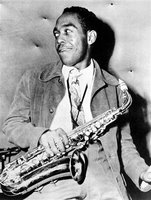You’ve probably figured out by now that I’m not too terribly embarrassed by the stories on my personal list of worst baseball blunders.
After all, if I were, I wouldn’t be posting them on the World Wide Web.
Indeed, these events happened in my youth and so much time has passed that now I can just laugh them off.
Except for this one.
Yes, it’s true.
This one isn’t all that funny, and I’d like to avoid it.
In fact, I’ve racked my brain trying to think of a replacement, but I can’t.
If my list of top five baseball blunders is going to have any integrity, this one has to be on it.
I was older--probably 14, maybe even 15 years old.
My own baseball career was winding down at that point and I had started to watch a lot of my younger sister’s softball games.
I actually quite enjoyed them.
Anyway, at one point in the season the team’s manager asked me to be the third base coach.
At first I was a little surprised (and wondered how the dad coaching first base felt about a teenager getting to coach the "important" base), but I gladly accepted.
At that point in my life, it was the highest ranking position with the most responsibility that I had held.
As it turned out, I was a natural for the position.
As a lifelong baseball player and astute observer of my sister’s softball team, I already had the strategic nuances of a third base coach down pat.
And I must have done all right that first game because the manager kept calling me back game after game.
Pretty soon it was obvious to me that I was first string third base coach.
Nobody would head for third or home without my consent.
Now that’s power.
Keep in mind, this softball team was mainly a bunch of 11-year old girls.
At that age, they’re looking for guidance, someone to look up to and trust.
My sister was fairly popular on the team too, so that made my job even easier.
These girls weren’t just going to listen to me, they were going to
gladly listen to me.
And this team was good.
We won most of our games and definitely had hopes of contending for the championship.
Toward the end of the regular season, though, we found ourselves in a tight game.
Down by a run in the last inning.
I forget how many outs, probably one or zero.
Our best player was on first base, representing the tying run.
I had butterflies.
CLINK!A line shot went into right field, and my gut told me that our best player would be able to score from first on the hit.
My job was to make sure that when she started rounding second she saw and heard a wild man waving her home to make sure that she would sprint the whole way.
However, after she was about halfway to third, I noticed that the outfielder had picked up the ball and the throw looked “not half bad.”
In fact, it looked like the outfielder was indeed going to hit the cutoff.
My brain immediately told me to abort the mission and have my runner hold at third.
And if it had been my first day as third base coach, I would have done exactly that.
But now I not only considered myself an expert, I was part of the team.
This was personal, and I was actively going to make a difference.
Besides, I had already been screaming and signaling that she could take home, so for me to now tell her to hold at third would be to admit a mistake.
In my moment of indecision, I glanced at her eyes; they were intent on third base and dreaming of home.
She was our best player and wanted to win, hungry to score the tying run. Her eyes were determined.
Of course, she had no idea where the ball was at—she was trusting me.
Not missing a beat, I kept waving and hollering. She rounded third...
When I looked back up for the ball, I saw the second basemen wheeling to make the throw from the edge of the grass.
In my mind, there was no way that there could be two quality throws in a row.
Besides, the second basemen tends to be the worst of the infielders.
It just seemed the odds were on our side…
Then the throw came… straight to the catcher’s mitt.
It beat my runner by at least 20 feet.
She definitely had time to turn around and at least force a pickle, but I think she was too stunned.
She should have felt betrayed by me, but more likely her young, impressionable mind somehow thought it was her own fault.
Perhaps she blamed herself for not obeying my command to magically score the tying run.
This is the only thing I can come up with as to why she didn’t turn around and create a pickle or just stop dead in her tracks and point back at me saying, “You set me up!”
Instead, she just kept going.
Well, there was a play at the plate all right.
The catcher extended her glove to make the tag, and our best player made her best effort to hurdle the glove.
In the process she managed to smack into just about every piece of hard plastic equipment the catcher was wearing.

The catcher hung onto the ball, and not only was our runner called out, she didn’t get up right away. Her dad and our manager both went out to see her as the tears flowed and the dust settled at home plate, but I stayed at third base looking for a very deep hole to crawl into.





